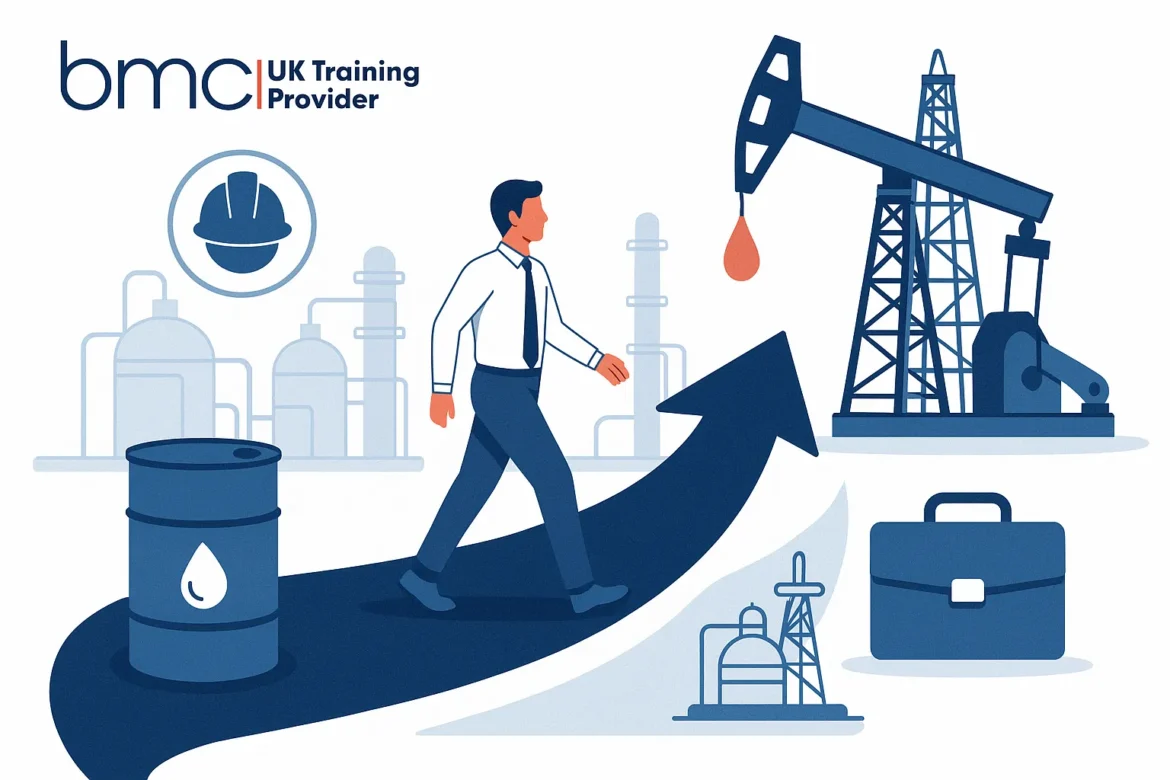Entering the oil and gas industry can be a rewarding career choice, offering numerous opportunities for growth and advancement. With the right guidance and preparation, you can navigate the complexities of this dynamic field. This article provides expert insights on how to successfully enter the oil and gas sector, covering essential qualifications, certifications, and practical tips to help you stand out in a competitive job market.
Quick Summary
- Comprehensive guide on entering the oil and gas sector.
- Insights on qualifications and certifications needed.
- Practical tips for gaining relevant experience.
What Is How to Get Into the Oil and Gas Industry?
The oil and gas industry encompasses the exploration, extraction, refining, and distribution of oil and natural gas. It is a vital sector that fuels economies worldwide. Getting into this industry involves understanding its various facets, including the technical, operational, and regulatory aspects. This guide aims to equip you with the knowledge and tools necessary to embark on a successful career in this field.
Why Is How to Get Into the Oil and Gas Industry Important?
The oil and gas industry is crucial for global energy supply and economic stability. Understanding how to enter this industry is important for several reasons:
– Job Opportunities: The sector offers a wide range of career paths, from engineering to project management.
– Economic Impact: Careers in this field contribute significantly to local and global economies.
– Technological Advancements: The industry is at the forefront of technological innovation, providing opportunities for professionals to work with cutting-edge technologies.
How to Apply How to Get Into the Oil and Gas Industry Effectively
To effectively apply for positions in the oil and gas industry, consider the following strategies:
1. Research the Industry: Understand the different sectors within the industry, including upstream, midstream, and downstream operations.
2. Network: Connect with professionals in the field through industry events, online forums, and social media platforms like LinkedIn.
3. Tailor Your Resume: Highlight relevant skills and experiences that align with the job descriptions you are applying for.
4. Prepare for Interviews: Familiarize yourself with common interview questions and industry-specific scenarios.

Step-by-Step Process
- Identify Your Interests: Determine which area of the oil and gas industry interests you the most.
- Educational Requirements: Pursue relevant education or training programs that align with your career goals.
- Gain Experience: Look for internships or entry-level positions to gain practical experience.
- Obtain Certifications: Acquire necessary certifications that enhance your employability.
- Apply for Jobs: Start applying for positions that match your skills and interests.
Tools and Methods
To successfully navigate your entry into the oil and gas industry, consider utilizing the following tools and methods:
– Online Job Portals: Websites like Indeed, Glassdoor, and LinkedIn can help you find job openings.
– Industry Associations: Joining organizations such as the Society of Petroleum Engineers (SPE) can provide networking opportunities and resources.
– Training Programs: Enroll in training programs that offer certifications in safety, technical skills, and industry standards.
When Should You Use How to Get Into the Oil and Gas Industry?
Understanding when to apply your knowledge of how to get into the oil and gas industry is crucial. Ideal times include:
– During Career Transitions: If you are looking to switch careers or industries.
– After Completing Education: When you have finished your degree or training program.
– When Seeking Advancement: If you are already in the industry and looking to move up.
Key Differences and Comparisons in How to Get Into the Oil and Gas Industry
Different paths can lead to a career in the oil and gas industry. Here are some key differences:
– Technical vs. Non-Technical Roles: Technical roles often require engineering or scientific backgrounds, while non-technical roles may focus on management, finance, or human resources.
– Field vs. Office Work: Field positions involve hands-on work in extraction or drilling, while office roles may focus on planning, analysis, or administration.
Comparison Table
Practical Examples
To illustrate the various pathways into the oil and gas industry, consider the following examples:
– Example 1: A recent engineering graduate applies for a position as a drilling engineer, leveraging their academic background and internship experience.
– Example 2: A professional from the finance sector transitions into the oil and gas industry by applying for a financial analyst role within an oil company, utilizing their analytical skills and industry knowledge.
| Feature | Option A | Option B |
|---|---|---|
| Entry-Level Positions | Field Technician | Office Analyst |
| Required Education | High School Diploma | Bachelor’s Degree |
| Average Salary | $50,000 | $70,000 |
| Job Growth Rate | 5% | 3% |
| Work Environment | Outdoor | Office |
| Safety Training | Essential | Essential |
Comparison of key aspects.
Practical Tips for Mastering How to Get Into the Oil and Gas Industry
- Stay Informed: Keep up with industry news and trends to understand the evolving landscape.
- Develop Soft Skills: Communication, teamwork, and problem-solving skills are essential in this industry.
- Seek Mentorship: Find a mentor who can provide guidance and insights based on their experience in the field.
Frequently Asked Questions (FAQ)
Q: What academic background is most useful?
Q: Are safety certifications mandatory for entry?
Q: Is it necessary to relocate to enter the industry?
Q: What is the role of management training in this field?
Q: How can I gain relevant experience early?
Q: Does the industry hire professionals from other sectors?
Q: What is the outlook for careers in the oil and gas industry?
## Final Thoughts on How to Get Into the Oil and Gas Industry
Entering the oil and gas industry requires careful planning, education, and networking. By following the steps outlined in this guide and leveraging available resources, you can position yourself for a successful career in this dynamic field. At BMC Training, we offer specialized courses and training programs designed to equip you with the skills and knowledge needed to thrive in the oil and gas industry. Explore our offerings today and take the first step towards your future success!


